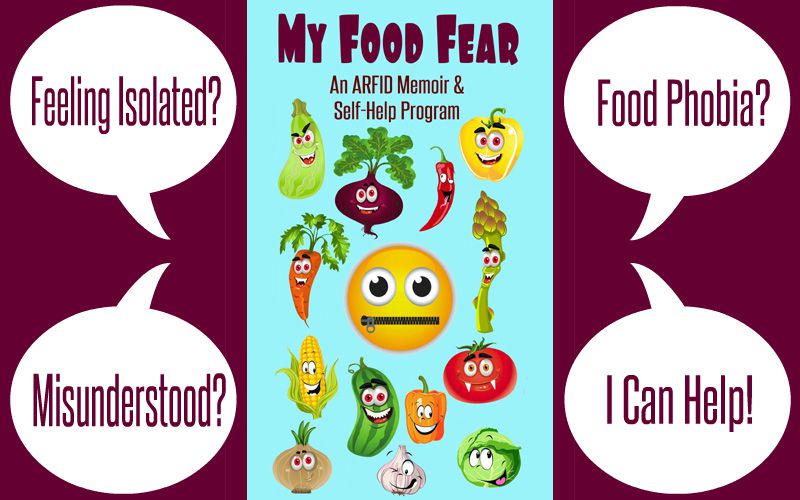How can I get my child to eat? This is a really common question asked by parents of finicky eaters. In some cases, the query becomes a plea for help when children will not eat much or at all…
Why do some children demonstrate such fear of food? How can parents help their children to form healthy eating behaviors from an early age? Will the wrong approach to monitoring your child’s food choices cause more harm than good? These are all excellent questions to consider in relation to the topic of making your children eat.
As a child, I was highly selective of my food choices from the earliet age. I clearly recall eating only a handful of foods dating back to the age of 2. At age 4, I became a vegetarian and this narrowed my eating options even more, especially since some of my favorite foods prior to this choice were meats. Howe did my mother handle my eating habits? Did her actions help me or cause me harm? Let’s explore this topic in this fascinating and helpful post. If you are a parent looking for guidance on getting your children to eat, this is a great place to start.
How Can I Get My Picky Child to Eat More Diversity of Foods?
Maybe your child eats relatively well, but has a fear of eating new foods. This is called food neophobia. It is actually a very common trait in children and in many adults, as well. Children tend to stick to eating what they know and love. If it is not broken, why fix it? They simply like what they like.
The degree of neophobia can range dramatically. Some children are reluctant to try new foods, while others are terrified. This is where it is important to know your child… If the child simply tends to avoid new foods and is not an adventurous eater, they can usually be easily persuaded to try new foods using caring, constructive encouragement. These children will almost always outgrow their neophobia anyway, as they mature.

However, if the mere idea of eating new foods terrifies your child, then it will be much harder to get them to eat what they are not comfortable with. There is also more risk when trying to force a child to eat in these circumstances, although forcing any child to eat can have dire consequences on long-term psychological development and healthy eating habits.
Parents can often convince children to eat a greater range of foods simply by integrating new items slowly and caringly into their menu. By incorporating a new item in to something familiar, parents have a greater chance for success when trying to get their children to eat a wider range of food items, especially if the new item is integrated into the child’s favorite food and prepared in a way to conceal it to some extent. This tactic will likely produce much better results than simply presenting a very unappealing food to a reluctant child all alone on their plate.
Can I Really Get My Child to Eat?
Some children have an eating disorder known as ARFID, or avoidant restrictive food intake disorder. I suffered from this condition for decades and it largely shaped my life from the age of 2 until about age 37. The condition was formerly known as selective eating disorder and also ranges in degree and consequences.
Children with ARFID might be very healthy and well adjusted in every way, despite eating very few foods and being incredibly stubborn about NOT trying new foods. This is the best case scenario. Typically, children might still be physically healthy, but will suffer some degree of psychoemotional or social distress as a result of their ARFID. I know for sure that I did!
In less positive case scenarios, children might suffer serious psychological issues or physical health concerns due to their ARFID. Malnutrition, inability to gain weight and various health disorders are all possible results of extreme selective eating. Fortunately, this last category is rather uncommonly seen.
As a parent with the best intentions, you want your child to benefit from your love and care. You want your strategies to actually help them. Therefore, you must put aside your own ego and desire for control over them in favor of knowing your child’s specific needs and finding the best approach to helping them to eat better. This can be a very subjective call…
I present much information on this website. Getting up to speed on ARFID is a great place to begin. I make that really easy for you to do here! If you feel that after reading the information on this site, and especially my related posts covering children who will not eat and food phobias in children, you might consider talking to a specialist in eating disorders for guidance. This is not to say that this is the only path towards successful ARFID treatment (if treatment is even necessary at all, which it often isn’t). But, for parents who are really unsure about what the best course of action truly is, consulting a doctor would be a great idea.
How Can I Get My Child to Eat? My Mother
My mother was a wonderful woman who really loved me so well. I was raised in a warm home, but always had some issues from an early age. These issues might be a result of not having a father in the home or knowing that mom and dad’s relationship was quite horrible. Maybe the issues came from another source. Maybe they were simply parts of my personality and were therefore idiopathic in nature. What I DO know is that I would not eat… I would not eat much quantity and I certainly would not eat much variety. My earliest memories have me eating a small handful of different foods each day. This selection diminished greatly when I gave up meat, poultry and fish at age 4. Now, I really ate only a few food items and this habit actually grew WORSE as I matured and became an independent adult.
My mother tried various things to get me to eat. She was gentle, not a disciplinarian. Her intentions were good, but her results were not… She took me to see 2 different doctors. One said to hit my knuckles with a wooden spoon until I ate, while the other told her to put me on a vegetarian Indian diet. Both of these recommendations were so clueless that she never talked to a doctor about my eating ever again…
I was left alone from that time on and my eating habits simply accepted. I had asserted my position by the age of 4 or 5 and stuck to it. How did it work out for me? You can read the big picture of my case in the My Story section, but if you really want the full, detailed account of my very interesting case, you should read my acclaimed book: My Food Fear. It is a combination of humorous memoir and an excellent self-help program for problem eaters.
I DID cure my eating disorder. I eat so healthily now and I love eating. It did take me much of my life to accomplish this and the way I was managed as a child DID influence this timeline. How are your intentions and actions to get your child to eat affecting them now and in the future?

Leave a Reply
You must be logged in to post a comment.